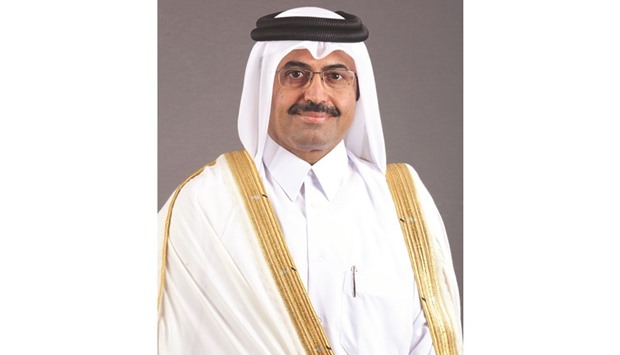In an effort aimed at stabilising the global oil market, Qatar will host a key meeting of oil producers, both Opec and non-Opec, in Doha on April 17, which will work on a deal to freeze output.
Qatar is organising the meeting as it holds the Opec presidency in 2016.
HE the Minister of Energy and Industry Dr Mohamed bin Saleh al-Sada, and current president of the Opec Conference, said the April 17 meeting in Doha “came as a follow-up to the meeting that was held last month in Doha among Qatar, Saudi Arabia, Russia and Venezuela at which they proposed an accord to freeze oil output at January 2016 levels and called on other producers to do so”.
He said: “To date, around 15 Opec and non-Opec producers, accounting for about 73% of global oil output, are supporting this initiative.”
Qatar, as the president of Opec, has been co-ordinating with Opec and non-Opec oil producers to gather more support for the Doha initiative to stabilise the market.
“The proposal is being increasingly supported by both Opec and non-Opec countries, including Saudi Arabia and Russia,” the minister noted.
Al-Sada said: “The continuous efforts of the Qatari government have been instrumental in promoting dialogue among all oil producers to support the Doha initiative, helping the stabilisation of oil market to the interest of all”.
A statement issued by the Ministry of Energy and Industry said: “It is worth noting that the earlier Doha meeting of February 16 has changed the sentiment of the oil market and put a floor under the oil price. This has triggered a broad and intensive dialogue between all oil producers out of the conviction that current oil prices are not sustainable.
“This is evident by the unprecedented drop in investment in the oil industry, which has indeed started to impact oil production worldwide, showing a decline that seems likely to continue. This drastic reduction in investment is already taking its toll on the oil industry.”
A Bloomberg dispatch said oil rallied after al-Sada’s statement, gaining as much 2.2% to $39.60 a barrel in London.
Prices have rallied more than 30% since a mid-February proposal by Qatar, Saudi Arabia, Russia and Venezuela to cap oil output and reduce a worldwide surplus that had seen prices slump to 12-year low in January, the news agency said.
The summit in April would seek commitments from a wider range of producers both within and outside the Organisation of Petroleum Exporting Countries.
“Kuwait was the first other Opec member to confirm it would attend”, Bloomberg said quoting an e-mailed statement from its oil minister.
Reuters said “it was unclear” whether all 13 Opec members and which outside producers would attend.
Kuwait and the United Arab Emirates said “they would commit to the freeze” if other major producers also participated, the agency dispatch said.
In a statement carried by Kuwait News Agency (Kuna), Kuwaiti Deputy Prime Minister, Finance Minister and Acting Oil Minister Anas al-Saleh said that his country’s participation in the meeting reflected its support to producers’ efforts to stabilise the global oil market.
The willingness of Iraq, the biggest source of Opec supply growth in 2015, to join the deal is also important.
Baghdad on Monday said the freeze initiative was acceptable, citing the hardship for producers caused by low prices.

HE al-Sada: the current president of the Opec Conference
